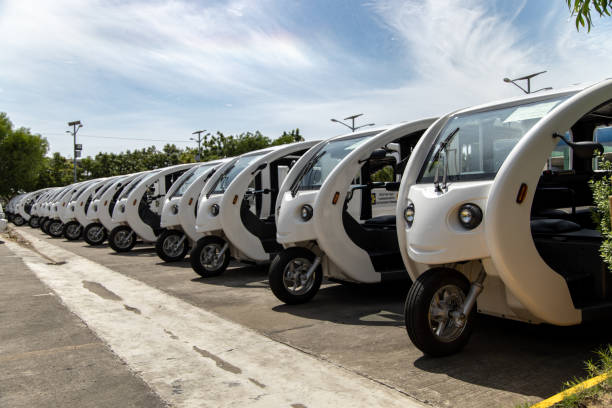Q1. Could you start by giving us a brief overview of your professional background, particularly focusing on your expertise in the industry?
I bring over 12 years of experience in the Indian automotive industry, with the last 5+ years intensely focused on Electric Vehicles. I’ve led strategic sourcing, vendor development, and supply chain transformation across ICE and EV platforms. My core strengths include developing supplier ecosystems, cost engineering, risk mitigation, and localization strategies tailored to India’s evolving mobility landscape. I’ve worked across categories—from traditional components to advanced electronics, BMS, and battery packs—helping build agile, cost-effective, and sustainable supply chains.
Q2. How has the shift toward EVs, automation, or digitalization changed the type of suppliers that are gaining a competitive edge?
There’s a fundamental shift. Traditional mechanical component suppliers are being complemented or even replaced by electronics, software, and battery tech firms. Suppliers with capabilities in embedded systems, telematics, AI-based diagnostics, and lightweight composite materials are now gaining ground. Those who are agile, digitally mature, and quick to co-develop with OEMs are standing out—especially those investing in vertical integration, design IP, and quick NPD cycles.
Q3. How do you see supply chain agility evolving in response to global disruptions or material shortages?
Supply chain agility is no longer optional—it’s a strategic differentiator. Post-COVID and amid geopolitical uncertainties, OEMs are diversifying their supplier bases, reducing overdependence on China, and increasing local content. Real-time visibility, digital control towers, dual sourcing, and shorter lead-time procurement models are becoming standard. We are seeing more JIT being balanced with JIC (Just-in-Case) for critical components, such as semiconductors and rare-earth elements.
Q4. How is the growing focus on sustainability and ESG influencing procurement practices across the industry?
ESG is redefining supplier qualification. Green procurement, carbon footprint tracking, and ethical sourcing are now part of RFQ criteria. Battery recycling, energy-efficient operations, and traceability of raw materials—especially for lithium and cobalt—are under intense scrutiny. OEMs are partnering with vendors who commit to using clean energy, operating zero-waste plants, and providing clear ESG disclosures. Compliance is no longer just for exports; Indian firms are aligning with global benchmarks.
Q5. What are some best practices you’ve found effective when creating RFQs that drive both cost competitiveness and quality assurance?
- Clear Technical Scope: Precise drawings/specs to avoid ambiguity.
- TCO Approach: Evaluate beyond piece price—include logistics, tooling, warranty, and lifecycle costs.
- Performance Benchmarks: Ask for past PPAP data, rejection rates, and delivery adherence.
- Cost Breakups: Mandate detailed cost sheets for transparency and negotiation levers.
- Quality Gate KPIs: Link payment terms or vendor ratings with pre-agreed quality thresholds.
- Early Supplier Involvement (ESI): Co-create solutions to reduce cost from the design phase.
Q6. Where do you see the most untapped opportunities in the procurement or sourcing side of the automotive industry?
- Local EV Ecosystem: Indigenous sourcing of motors, controllers, and charging infrastructure is underdeveloped.
- Raw Material Backward Integration: India lacks local processing for critical minerals; enormous scope lies here.
- Digital Procurement Platforms: AI-based supplier scouting and e-sourcing tools can drive efficiency.
- Remanufacturing & Circular Economy: Especially for battery packs and e-powertrain components.
- Supplier Development Programs: Tier 2/3 suppliers lack maturity—OEM-led capability-building can unlock value.
Q7. If you were an investor looking at companies within the space, what critical question would you pose to their senior management?
“How are you de-risking your supply chain and building resilience against geopolitical, material, and technology shifts—while ensuring ESG compliance and localization targets over the next 5 years?”
This reflects both immediate tactical strength and long-term strategic foresight—critical in today’s dynamic environment.
Create an account to read the full article
Create Account
Already have an account? Sign in

